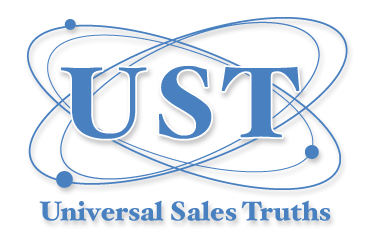We hear the phrase “time equals money” all the time. Certainly for professionals who are literally on the clock, such as an attorney or IT consultant who bills on an hourly basis, it’s very easy to understand the term.
But how does it specifically relate to a professional sales executive? In my opinion, since we are not paid by the hour, it is even more important because every hour we spend on activities not directly related to generating sales is wasting valuable time.
Simply put, spending more time with customers who provide high potential and are most likely to buy, and less time with “tire kickers” who are least likely to buy, will significantly increase your success. I assume there would be no disagreement on this fundamental principle. The real challenge becomes the execution of the principle.
Over the last several months I’ve had the opportunity to observe sales professionals in the agricultural and construction equipment business. Selling equipment that digs holes and moves dirt is certainly a world apart from my experience in high-tech sales. However, basic sales skills are transferable.
Heavy equipment sales reps spend a lot of time educating prospects on features, attachments, operational benefits, etc. Additionally, pricing trades, preparing new machine pricing and generating formal proposals occupy a large portion of the business day.
Without getting into the details, my observation is that north of 50 percent of this valuable selling time is spent with prospects who never make a purchase.
As a partner in a motorcycle business years ago, I had a similar challenge. Bikers would come into our shop and ask my partner detailed questions regarding the customization of their Harley. This would require him to stop working and research parts and accessories for the potential customer. His expertise regarding cost-effective options based on his years of experience was a valuable asset. This exercise could take over an hour. And the biker, most times, was in no hurry. He enjoyed talking and learning from my partner. However, many of these discussions were merely “fact-finding” adventures. The biker did not have the money to customize his bike. In other cases, the biker got the information he needed and then purchased elsewhere. Sometimes the biker bought the parts and then asked us to install them. The bottom line was, my partner was removed from revenue-generating work to talk with walk-ins that most of the time never resulted in business for our motorcycle shop. So while he was talking, he was not working on motorcycles. This was in fact a double-whammy. It’s one thing for a salesman to waste time. It’s even worse to lose an hourly wage while talking to someone you will never do business with.
Regardless of the product you sell, the objective is to insulate yourself from activities or people who divert your attention from your primary focus. And that is to be in front of customers who are the most likely to purchase.
At the end of the day, the fundamentals of time management are always applicable. Regardless of the product or service you sell, your ability to quickly and efficiently qualify the prospect is critical to sales success. Developing the skill set to weed out the “tire kickers” in a professional manner is critical to long-term sales success. Then focusing your time and energy on specific, targeted customers who have a need for your product will increase your productivity immensely. This is proactive, as opposed to reactive, selling.
